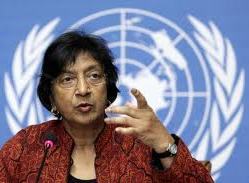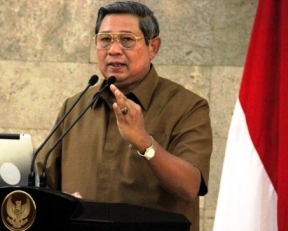By Rowan Callick === A breakthrough may be on the way for one of the most intractable conflicts in the Asia-Pacific region. Relations between Indonesia and the Melanesian nations, led by Papua New Guinea, have remained awkward ever since the Dutch withdrew from “Netherlands New Guinea,” and the Pacific islands became independent states.
The plight of “West Papua” as it is often called, has prevented Indonesia, the biggest and closest country in South-East Asia, from building the links that might otherwise have been expected, with the island countries to its east—even since it became a liberal democracy 15 years ago.
But, the PNG government, led by Prime Minister Peter O’Neill, has recently launched an initiative aimed at defusing the stand-off over West Papua, building the economy of the centre of New Guinea island, and gaining diplomatic spin-offs.
The western half of New Guinea island comprises two Indonesian provinces: Papua, whose capital is Jayapura, and West Papua, whose capital is Manokwari. It has a 750-km mostly mountainous and often in the past fraught and dangerous border with PNG.
In 2001, the area now covered by the two provinces was declared autonomous with 80 percent of its tax receipts to be retained for local use. But this process has remained only partially complete compared with the more successful governance situation in Aceh, at the other end of the Indonesian archipelago.
O’Neill, who led a delegation to Jakarta for talks with President Susilo Bambang Yudhoyono, said: “West Papua has been a sticky issue for PNG and the western Pacific for quite some time. Our role is to open up discussions.
Genuine desire
“We feel the government of Indonesia has a genuine desire to ensure issues relating to West Papua are managed in a mutually beneficial manner. For the first time in our bilateral discussions, we were able to discuss this openly with the Indonesian government,” said PM O’Neill.
He said he is convinced that Yudhoyono now wishes to withdraw military presence from West Papua, and allow for more autonomy through economic empowerment of the people.
“We feel this is a good opening for us to engage with the Indonesian government so we can participate in the improvement of the lives of Melanesian people there and of our own people along the border. Our officials are now engaged meaningfully in establishing the cooperation we agreed,” he said.
PNG’s Foreign Minister Rimbink Pato elaborated on the deal that was informally struck: “The Indonesian president will adopt a softer approach to West Papuan issues, allowing them greater autonomy.”
As an indicator of this, official representatives will participate in the Melanesian Festival of Arts and Culture to be hosted by PNG next year.
He said Indonesia would allow Papua New Guinea communities near the border to draw on its excess hydro power capacity with state-owned enterprise PNG Power buying electricity for its grid from Indonesia, and that the two countries would jointly explore for oil and gas in highly prospective targets that straddle the border.
Indonesia, Pato said, would fund an ambitious paved highway from Merauke on its side of the border in the south, to PNG’s Wewak on the northern coast.
The countries’ leaders signed a total of 11 MOUs during O’Neill’s visit, after which Pato and his Indonesian counterpart Marty Natalegawa began to chart an implementation course.
Extradition treaty
They agreed on an extradition treaty—which may ensure that Indonesian businessman fugitive Joko Chandra—wanted for corruption and who obtained PNG citizenship under a process that is being challenged legally—returns to face charges.
Another agreement under final negotiation, will permit planes to fly from Nadi, Fiji, through Honiara in Solomon Islands, then Port Moresby, and on to Bali.
One goal of the warming of relations, Pato said, was to prevent any resurgence of asylum-seekers from the Indonesian side of the border. About 8,000 refugees remain in PNG, living in camps in Western province run by the UN High Commissioner for Refugees following earlier conflicts, many of them seeking refuge more than 25 years ago.
The discussions between PNG and Indonesia have led to the latter inviting the foreign ministers of the four Melanesian states — Solomon Islands, Vanuatu and Fiji, as well as PNG, who form the “Melanesian Spearhead Group” (MSG) — to visit its Papua and West Papua provinces.
O’Neill flew for talks with Yudhoyono instead of attending an MSG leaders’ meeting held at the same time in New Caledonia.
While PNG is helping to usher its fellow Melanesians in towards better relations with Indonesia, Indonesia in return is backing Port Moresby’s membership of the Association of South East Asian Nations (ASEAN).
ASEAN has 10 members at present — and PNG feels it is entitled to join it because it has such a long land border with the group’s largest state.
Indonesia is also backing PNG’s bid to host the 2018 summit of the APEC forum — which would bring the American and Russian presidents, among other leaders, to Port Moresby — which will be decided at the next summit in Bali in October.
“It’s important for us to have such a relationship with Indonesia,” said Pato — who points out that in previous years, tensions not only unresolved but not even fully discussed about West Papua had prevented the full development of positive, mutually beneficial arrangements between the countries.
Now a joint committee of ministers from the countries has been formed to tackle the details and ensure the MOUs are implemented, he said — starting with the joint economic projects.
Source: Islands Business






